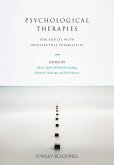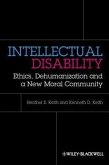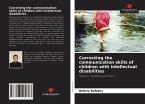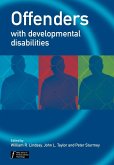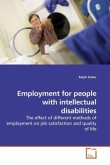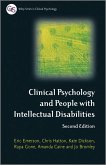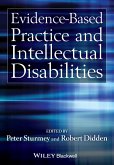The continuing drive towards care in the community has made effective assessment of the needs of people with intellectual disabilities more critical than ever. This handbook enables professionals working with adults with intellectual disabilities to establish the needs of individuals through systematic assessment and to employ such assessments to monitor and evaluate the effectiveness of the service they provide. The volume is divided into two main parts. The first consists of conceptual chapters addressing issues on the function of assessment in various behavioral domains. The second part describes selected assessment instruments and strategies that are commercially available or are published in an accessible form. Each of these is considered with respect to function, construction, availability and utility. The expert contributors to this volume cover the full spectrum of need, including adults with intellectual disabilities and additional mental health difficulties, behavioral problems, also considering those with profound intellectual and multiple disabilities, and those suspected of developing dementia. The assessment of quality of life is given special consideration, as is assessment for employment.
Hinweis: Dieser Artikel kann nur an eine deutsche Lieferadresse ausgeliefert werden.
Hinweis: Dieser Artikel kann nur an eine deutsche Lieferadresse ausgeliefert werden.
"Hogg and Langa have assembled a gem... they have captured a rangeof nuanced issues and problems facing workers in the field ofintellectual disabilities. This text is sure to become anindispensable companion to any clinician, researcher, or providerwanting to better understand assessment and the complex lives ofpeople with intellectual disabilities." Matthew P. Janicki,Ph.D., University of Illinois at Chicago
"A timely publication that brings together a group of highlyrespected contributors from Europe, North America and Australia.Its strength lies in its coverage of important conceptual issues,including person-centred planning, supported by a critical analysisof contemporary strategies and assessment instruments. The focus onperson-centred planning ensures its relevance to emerging practicesin the support of people with an intellectual disability. It willfind a place in the libraries of both practitioners andresearchers." Professor Trevor R. Parmenter, Foundation Chair ofDevelopmental Disability, University of Sydney
"This is a thought-provoking review of current assessmentpractice, reflecting the shift towards person-centred approachesand a concern to make assessment secure better lives for peoplewith intellectual disabilities." Professor Jim Mansell, TizardCentre, University of Kent at Canterbury
"A timely publication that brings together a group of highlyrespected contributors from Europe, North America and Australia.Its strength lies in its coverage of important conceptual issues,including person-centred planning, supported by a critical analysisof contemporary strategies and assessment instruments. The focus onperson-centred planning ensures its relevance to emerging practicesin the support of people with an intellectual disability. It willfind a place in the libraries of both practitioners andresearchers." Professor Trevor R. Parmenter, Foundation Chair ofDevelopmental Disability, University of Sydney
"This is a thought-provoking review of current assessmentpractice, reflecting the shift towards person-centred approachesand a concern to make assessment secure better lives for peoplewith intellectual disabilities." Professor Jim Mansell, TizardCentre, University of Kent at Canterbury


